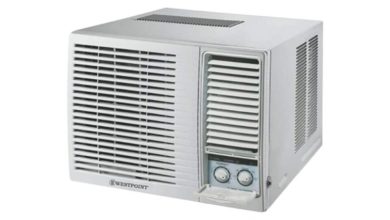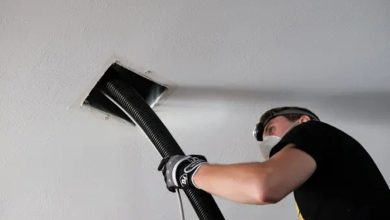Air Conditioner Repair Troubleshooting Tips

As the summer heat kicks in, a malfunctioning air conditioner can quickly turn your comfortable home into an unbearable environment. Fortunately, not all AC issues require professional intervention, and some troubleshooting can help you identify and potentially fix the problem on your own. Before calling in a technician, try these AC repair troubleshooting tips to get your system up and running efficiently.
Check the Power Source:
The first step is to ensure that your AC unit is receiving power. Check if it’s properly plugged into the electrical outlet and confirm that the circuit breaker hasn’t tripped. If you find a tripped breaker, reset it and see if the AC starts working. However, if the breaker trips again, there might be an electrical issue that needs professional attention. In case you need AC repair in Fishers, visit the website.
Inspect the Thermostat Settings:
Sometimes, the problem lies in the thermostat settings. Make sure your thermostat is set to “cool” mode and the temperature is lower than the current room temperature. Additionally, check if the thermostat’s batteries are fresh and replace them if needed. Incorrect thermostat settings are a common reason for AC inefficiencies.
Clean or Replace Air Filters:
Clogged and dirty air filters can significantly reduce your AC’s efficiency and airflow. Check the filters and clean them if reusable, or replace them with new ones every one to three months. Clean filters not only improve cooling performance but also enhance indoor air quality.
Examine Air Vents and Registers:
Inspect all the air vents and registers throughout your home. Ensure they are open, unblocked, and not obstructed by furniture or curtains. Proper airflow is crucial for your AC to cool your space efficiently and evenly.
Clear the Condensate Drain Line:
The condensate drain line carries away the excess moisture produced during the cooling process. Over time, it can become clogged with dirt and debris, causing water leakage or potential damage. Locate the drain line and gently clear any blockages to prevent potential issues.
Clean the Outdoor Unit:
The outdoor condenser unit is exposed to various elements, leading to dirt and debris buildup on its fins. Turn off the power to the unit, then carefully remove any leaves, grass, or dirt from the fins. Ensure there is ample clearance around the unit to allow proper airflow.
Check for Ice Buildup:
If you notice ice forming on the AC unit or refrigerant lines, turn off the system immediately. Ice buildup is a sign of airflow problems or low refrigerant levels. Let the ice melt completely before attempting to turn the AC back on or calling for professional assistance. In case you need AC replacement in Fishers, IN, visit the website.
Listen for Unusual Noises:
Unusual sounds coming from your AC unit, such as grinding, rattling, or banging, may indicate mechanical issues. While some noises are normal, persistent and loud sounds could point to underlying problems that need professional diagnosis and repair.
Test the Capacitor:
The capacitor is a crucial component responsible for starting the AC’s compressor and fan motors. A faulty capacitor can cause the AC to refuse to start or stop working suddenly. If you have experience with electrical work, you can test the capacitor with a multimeter. However, if you’re unsure, it’s best to leave this task to a professional.
Perform a System Reset:
In some cases, a simple system reset can resolve minor glitches and restore your AC’s functionality. Turn off the AC unit, unplug it, and wait for about 5 minutes before plugging it back in and turning it on again.
Summary
Keep in mind that while these AC repair troubleshooting tips can be helpful, not all issues can be solved without professional expertise. If your attempts to troubleshoot and fix the AC are unsuccessful or if you encounter complex problems, it’s best to call a qualified HVAC technician. Regular maintenance and prompt repairs can ensure your AC operates efficiently, keeping your home cool and comfortable all summer long.




